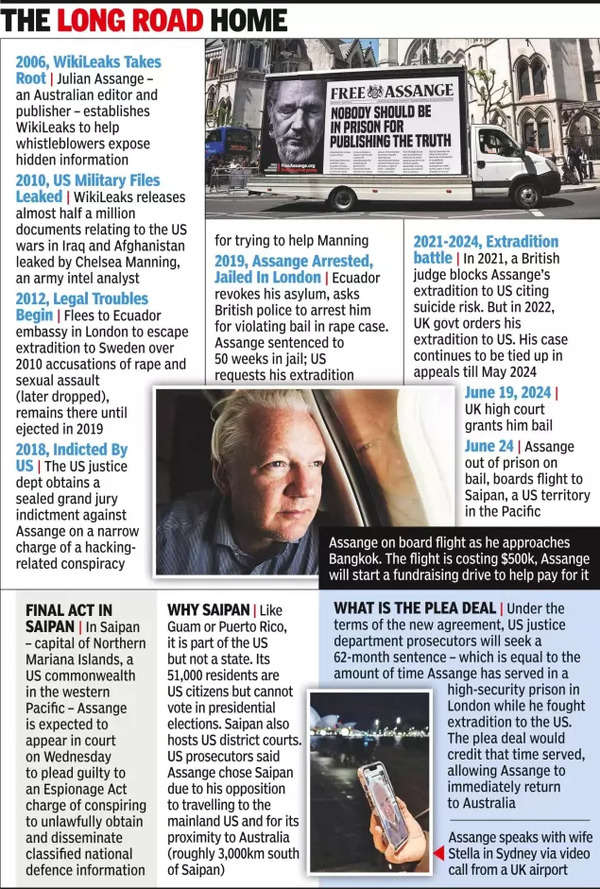Julian Assange, the co-founder of Wikileaks, may travel to Saipan where he will enter a guilty plea to leaking US national security information as part of a package that will allow him to return to his native Australia.
The trip left Bangkok for the US Commonwealth in the Pacific, where he is scheduled to receive a district judge sentence for the more than five years he has already spent in a UK jail. The 52-year-old will avoid a possibly lengthy statement in the US under the terms of the plea deal. If he had been convicted, Assange may have faced a maximum of 170 years in a national prison.

A criminal case of foreign drama and the US government’s years-long achievement of a publisher whose wildly popular secret-sharing website made him a reason célèbre among some press freedom advocates who claimed he acted as a journalist to introduce US military wrongdoing are abruptly come to an end with the plea deal. US lawyers, in comparison, have asserted that his steps broke rules and set the nation’s security at risk.
WikiLeaks gained notoriety in 2010 after it released swathes of diplomatic cables as well as hundreds of thousands of classified US defense papers on Washington’s wars in Afghanistan and Iraq. A 2007 picture of a US Apache helicopter firing at feared rebels in Iraq, killing a few people, including two Reuters reports staff, was among the more than 700, 000 documents in the treasure of more than 700, 000 documents. That film was made available in 2010.
Discussions for a plea deal gotten more heated in recent months as Prez Biden stated he was considering a request from the American government to reach a deal. A representative from the White House National Security Council confirmed that the justice ministry had made the decision on its own. Former American deputy prime minister Barnaby Joyce among the Assange’s supporters who claimed the outcome was the product of global lobbying from all political parties in Washington.



